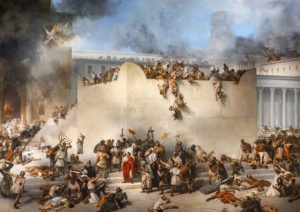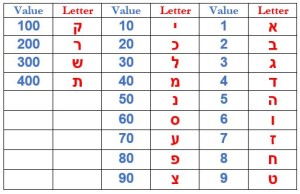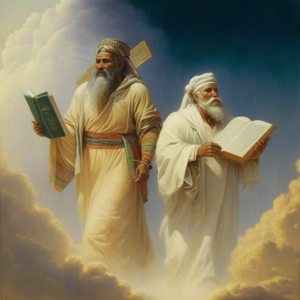
‘Destruction of the Temple in Jerusalem’ by Francesco Hayez (1867)
Tonight, we usher in Tisha b’Av to commemorate a number of tragedies in Jewish history, most notably the destruction of the Beit HaMikdash, Jerusalem’s Holy Temple. The first iteration of the Temple, built by King Solomon, was destroyed by the Babylonians in the middle of the 1st millennium BCE. The second, originally built by Jewish leaders like Ezra, Nehemiah, and Zerubbabel upon the conclusion of the Babylonian Exile—and later greatly magnified and renovated by King Herod at the end of the 1st century BCE—was destroyed by the Romans in 70 CE. Why were these Temples destroyed? What did the Jewish people really do (or not do) to merit such catastrophes?
We have all heard the simplistic answers before. Now especially, with what’s going on in the State of Israel, many are quick to point out that sinat hinam, baseless hatred and divisiveness among Jews, is the reason. People on the left and right of Israeli society today are warning that sinat hinam will do us in yet again. But the real story is much more complicated, and interesting, than that.
The reasons for the destruction of the First Temple are simpler to understand: there was a general lack of Torah observance. Idolatry was rampant, as described throughout the Tanakh, and there was a plethora of sexual sin and even bloodshed (Yoma 9b). In addition, the people failed to properly observe Shabbat and Shemitah (the Sabbatical year). Among other things that the Talmud (Shabbat 119b) notes are failure to recite Shema twice daily, interfering with children’s Torah education, a lack of honour for elders and priests, and Jews turning a blind eye and not rebuking each other for their sins.
The Talmud (Sanhedrin 64a) tells us that following the Babylonian Exile, the Sages that rebuilt Judea and ushered in the Second Temple era convened a special assembly and beseeched God to remove the desire for idolatry. God acquiesced, and idolatry was no longer really an issue among Jews going forward. Thus, Torah observance in the Second Temple era was much better. In fact, it was so much better that it was perhaps too much, and the Talmud (Bava Metzia 30b) says the Second Temple was destroyed because people were too exact with the law, and didn’t go lifnim mishurat hadin, “beyond the letter of the law”. This phrase is typically interpreted to mean that they should have been even more stringent than the law requires, but it can also mean the opposite, that they should have been more understanding and rule more kindly and favourably (see Ben Yehoyada here, as well as Rashi on Bava Metzia 83a).
In fact, we know that there was a push to make Jewish law extra strict in the times leading up to the Temple’s destruction. The most infamous case of this was when Beit Shammai took over the Sanhedrin and forcibly passed 18 new decrees, including the requirement to consume only pat Israel (Jewish-made bread), and to forbid all gentile-made cheese (gevinat ‘akum) and gentile-made wine. When this happened, Rabbi Yehoshua sadly remarked that they had “erased the measure”: by making Judaism even more difficult, few would want to observe it and it would ultimately serve to drive people away from God’s law. The Talmud Yerushalmi (Shabbat 1:4) goes so far as to call this event as tragic as the Golden Calf!
Another major factor in the Temple’s destruction was sexual immorality (Yoma 9b). Although the statement here in the Talmud is said with regards to the First Temple in particular, we know this was an issue in Second Temple times, too, as we see in other places. In Gittin 58a, for instance, we are presented with a convoluted story where a young apprentice desired the wife of his master, so he cooked up a plan that ended with the apprentice stealing the wife of his master, and enslaving the master to serve them. It was at this specific point that God decreed the Second Temple’s destruction. And it was not an isolated case either. In Sotah 47a we read how Rabban Yochanan ben Zakkai, the leading sage in Judea during the Second Temple’s destruction, abrogated the entire sotah procedure for a suspected adulteress because there was just too much adultery going on!
There are few things God hates more than sexual licentiousness and public promiscuity. Such behaviour is undoubtedly a cause for catastrophe, and we should keep this in mind when reflecting on the disgusting hyper-sexualization of society going on today. We must not forget the Sages’ teaching that God did not decree the Great Flood until that generation had started marrying two men and even men to beasts (see Beresheet Rabbah 26:5, as well as Chullin 92a-b). The former has now not only become common but bizarrely needs to be celebrated, while the latter might still seem absurd but has started to happen in our days, too. There is an ironic connection to the Temple here that is worth pointing out:
The villain initially cast for the role of destroying the Temple was the Roman emperor Nero (Gittin 56a). However, he soon realized that God was using him as a pawn: Nero learned that God uses despicable people as His agents of evil, so that He could then punish them, too. Nero understood he was that evil pawn, and would eventually perish for it. So, he abandoned the task. From historical sources, we know that he committed suicide because everyone left him—including his own royal guard—as they were fed up with his monstrosity. Nero had killed his wife, then regretted it so much that he found a slave boy that looked like her, castrated him, dressed him up like the wife, and married the boy. This is the kind of villain God tasked with destroying the Temple. Today, such a person might be celebrated by secular society and the mainstream media as a progressive hero.
The task of destroying the Temple was ultimately left to Vespasian and his son Titus. The exact way that it came about is through the infamous story of Kamtza and Bar Kamtza (Gittin 55b-56a). In short, a wealthy man intended to invite his friend Kamtza to his party, but the invitation went to the wrong address and instead came his enemy, Bar Kamtza. The wealthy man wished to eject Bar Kamtza, and Bar Kamtza was so embarrassed he offered to even pay for the entire party if only they would let him stay and not suffer the shame. The host refused and kicked him out unceremoniously. People often misunderstand this story and think that here is an example of terrible sinat hinam that caused the Temple destruction. But that’s not how the story ends!
After getting kicked out of the party, Bar Kamtza said: “the Sages were sitting there and did not protest the [humiliation]!” How could the rabbis at the party stay silent? Angry, Bar Kamtza went to the Romans and told them that Israel is plotting a rebellion. He said he could prove it if they would send an official Roman sacrifice to the Temple. The Romans would see that the Jews would refuse their offering. As the sacrificial animal was being delivered, Bar Kamtza nicked it so that it would be blemished and unfit for offering. The Sages and priests were in a bind: on the one hand, they could not offer up a blemished sacrifice, as this would be insulting to God. On the other hand, rejecting the official Roman offering would certainly insult the Caesar and trigger a cruel response from Rome. One of the leaders at the time, Rabbi Zechariah ben Avkolas, concluded that their hands were tied and they should simply do nothing. The Romans were insulted, and the war began.
What is typically overlooked here is not the villainy of Bar Kamtza or his host, but the weakness, silence, and indifference of the rabbis. In fact, the passage concludes with Rabbi Yochanan teaching: “The ‘humility’ of Rabbi Zechariah ben Avkolas destroyed our Temple, burned our Sanctuary, and exiled us from our land.” The fault is placed not on Bar Kamtza, nor his host, nor the sinful Jewish masses, but squarely on the rabbis.
Today, again, we have rabbinic leaders who stay silent, who are indifferent, who are afraid to act, who don’t empathize with their flock, who rule stringently without heart, and who don’t bother getting involved in difficult issues. We have rabbinic leaders who take bribes masked as “charity” and avoid rebuking the wealthy and powerful; who spend their time in business and politics instead of spiritual upliftment and community building. Rabbinic leaders who do nothing to actually solve the many issues plaguing the Jewish world, and instead cowardly choose to support an unhealthy status quo. The prophet Jeremiah (2:8) saw this long ago when he quoted Hashem declaring v’tofsei haTorah lo yeda’uni, “and the ‘guardians of the Torah’ don’t know Me!” Those who claim to hold steadfastly to the Torah—the supposed, self-appointed tofsei haTorah—are really the furthest from Hashem.
And so, the Temple was destroyed not simply because of sinat hinam. It was destroyed because of lax Torah observance, and also because of overly strict Torah observance. It was destroyed because of sexual immorality and shameless promiscuity. And perhaps foremost, it was destroyed because of the silence and indifference of rabbinic leaders. The Temple has yet to be rebuilt because we are still dealing with these same problems. Until every Jew speaks out and refuses to play along, nothing will change. Until every Jew rises up and opposes the insanity on both sides of the social, political, and religious spectrum, we shouldn’t expect a rebuilt Temple or a Mashiach. Crying about it and pretending to be sad on Tisha b’Av is essentially pointless—two thousand years of that clearly hasn’t brought us one iota closer. To conclude with an oft-used (and oft-misused) verse: et la’asot la’Hashem, heferu Toratecha! “It is a time to act for God, for they have violated your Torah!” (Psalms 119:126)
Wishing everyone a meaningful fast
More Learning Resources for Tisha b’Av:
The Untold Story of Napoleon and the Jews
The Powerful Link between Tisha b’Av and Tu b’Av
The Jews Who Destroyed the Temple




